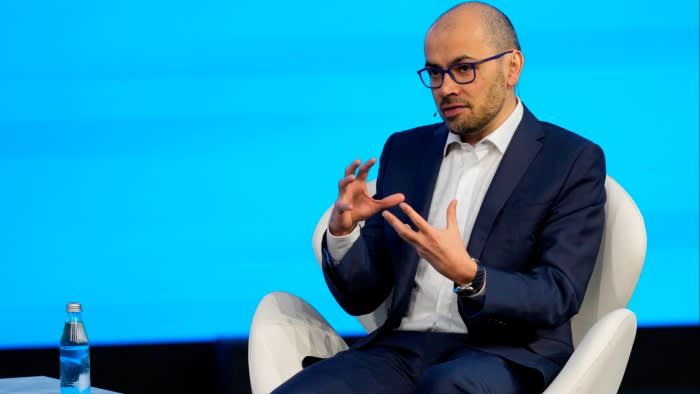Unlock the Editor’s Digest for free
Roula Khalaf, Editor of the FT, selects her favourite stories in this weekly newsletter.
Google chief executive Sundar Pichai has shaken up the tech giant’s top ranks and structure to speed up its development and rollout of artificial intelligence products, after facing criticism for falling behind rivals such as Microsoft.
All teams working on its AI models, including its flagship Gemini chatbot, will be unified under its DeepMind division run by Demis Hassabis, according to a memo on Thursday. This will include research, models, computing power and those responsible for overseeing their accuracy and trustworthiness.
A new platform and devices team run by Rick Osterloh, senior vice-president of devices and services, will encompass those working on the hardware and software behind Android, the Chrome browser, search and photos. Hiroshi Lockheimer, head of Android, will be moved to work on other products and is replaced by Sameer Samat, vice-president of product management for Android and Google Play.
“These changes continue the work we’ve done over the past year to simplify our structure and improve velocity and execution,” Pichai said. “It will help us turbocharge the Android and Chrome ecosystems, bring the best innovations to partners faster . . . and internally, it will also speed up decision making.”
The moves are the biggest overhaul in Google parent Alphabet’s structure since the merger of its DeepMind and Google Brain AI units a year ago. It represents a major increase in power for Hassabis, who joined Google when it bought his start-up in 2014, and who now controls much of its AI development and product output.
Google is trying to move on from a setback in February, when it had to pause image generation in Gemini due to a furore over its inaccurate historical depiction of different ethnicities and genders. The embarrassing incident added to the perception that its model was less capable than those released by rivals such as OpenAI’s, Meta and Anthropic.
Pichai has also been criticised for being slower to commercialise generative AI, despite the technology being created in-house by its researchers. Some have blamed this on Google’s fragmented structure, big-company bureaucracy and the lack of a coherent company-wide plan for rolling out generative AI across its range of products and services, the Financial Times has reported.
In particular, Microsoft’s $13bn partnership with OpenAI, which has given it access to the much-hyped ChatGPT model, has been a blow to Google and has driven its rival to become the most valuable listed company in the world. Microsoft is now worth more than $3tn compared with Alphabet’s of market cap of slightly less than $2tn.
The reshuffle comes ahead of Google’s first-quarter earnings on 25 April and its annual I/O developer conference on 14 and 15 May at its headquarters in Mountain View, California.
Pichai’s blog on Thursday also addressed an employee protest this week against an AI and cloud contract with the Israeli government and military. Nine workers who occupied a senior executives’ office were arrested and on Wednesday it fired 28 staff allegedly involved in the “No Tech for Apartheid” group.
“Ultimately we are a workplace and our policies and expectations are clear: this is a business, and not a place to act in a way that disrupts coworkers or makes them feel unsafe, to attempt to use the company as a personal platform, or to fight over disruptive issues or debate politics,” Pichai wrote.

Laura Adams is a tech enthusiast residing in the UK. Her articles cover the latest technological innovations, from AI to consumer gadgets, providing readers with a glimpse into the future of technology.








